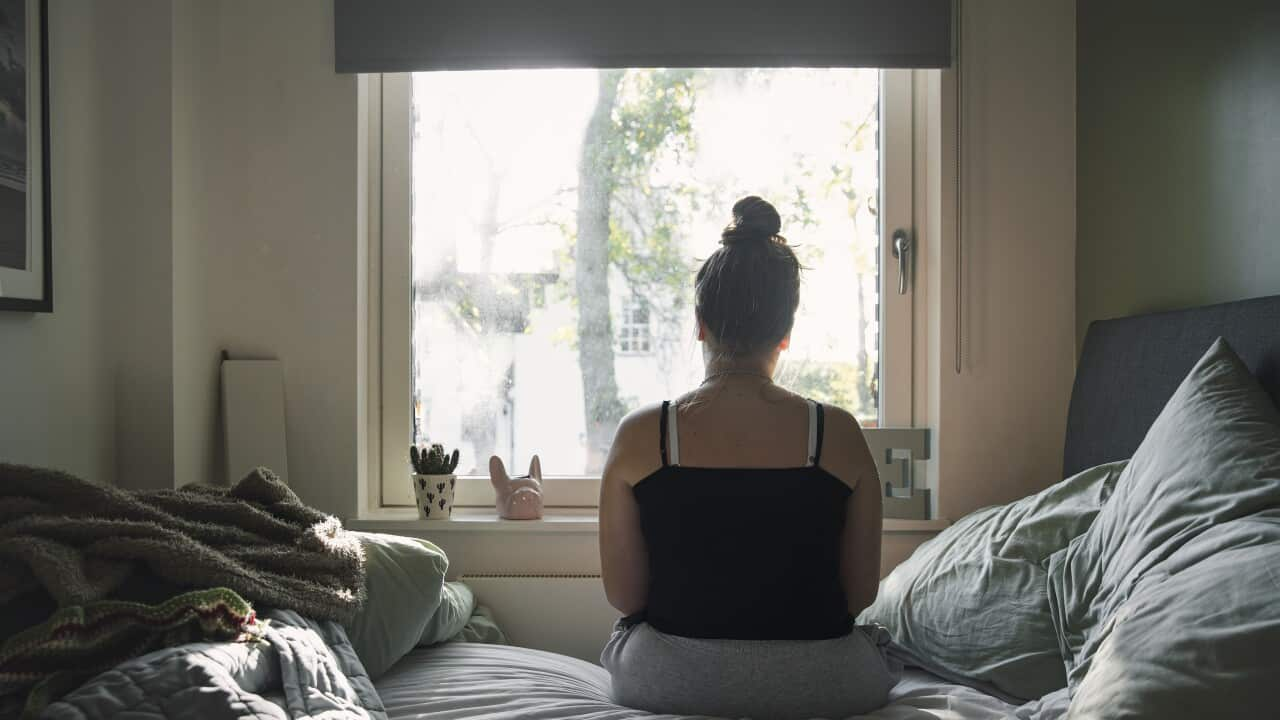This article contains references to eating disorders.
From the time she was a small child, Jane Murphy remembers having negative feelings about her body.
When she was in primary school, she began developing disordered eating habits and restricting her food intake.
She recalls disliking photos of herself, an adult making comments about her eating habits, and developing a belief that she needed to avoid "bad foods" and "the less you eat the better".
"I remember quite distinctly having quite significant body dissatisfaction as a little primary school child, and I had well and truly formed disordered eating habits by the time I was nine years old," Murphy said.
"It's definitely something that has been a seed that was planted when I was very, very young and grew up with me through my life."
Murphy's restrictive eating developed into , which refers to people who have all the typical symptoms of anorexia — including restricting food, fear of weight gain and distorted body image — but are not underweight.
Like many people with atypical anorexia, her eating disorder symptoms went unnoticed by the majority of her family and friends.

Jane Murphy is on a recovery journey from atypical anorexia. Source: Supplied / Jane Murphy
"I just couldn't see myself as being sick and having an eating disorder when there's so much talk about people in bodies that look like mine being unhealthy and needing to lose weight," she said.
"I was like, 'I'm just doing the right thing. I'm just trying to lose weight everyone tells you to'.
"And actually, it was really ruining my life."
When she was ready to seek help, Murphy said her GP was supportive, but getting adequate treatment and a diagnosis took years.
She said it was difficult to access treatment in a regional area, and many medical professionals were "dismissive" of her disorder or insisted she must have been binge eating.
"It was really traumatising and it took a while to be able to trust that there would be good professionals who would treat me with respect and see me and my condition how they really were in the eating disorder space," she said.
Doctors ill-equipped to support eating disorders
Recent research from Butterfly Foundation, a support service for eating disorders and body image issues, estimates that about 1.1 million Australians are living with an eating disorder.
Melissa Wilton, head of communications and engagement at the Butterfly Foundation, said patients with atypical presentation often struggle to access the care they need.
"We know both from our own research and from a lived experience perspective that many GPs and other health professionals are ill-equipped to recognise and adequately support someone presenting with an eating disorder," Wilton said.
"This problem is particularly prevalent when a patient presents in a larger body, or with other atypical intersections."
Many health providers do not feel they have the knowledge or tools to support patients with eating disorders, (RACGP).
Over half (57 per cent) of 859 GPs polled late last year said they needed more training to support patients with eating disorders, and about a quarter said they felt "not at all" equipped to support these patients.
Only 15 per cent felt well-equipped to manage eating disorders.
Butterfly Foundation's research has also found while there is general awareness of some eating disorders, there is still a lack of genuine understanding, with one in five Australians believing you can tell if somebody has an eating disorder just by looking at them.
Murphy, who now describes herself as being on a "recovery journey", said she wishes more people understood what an eating disorder can look like.
"I want more people to realise that things that we've normalised in our society and the way that we think about food and our bodies actually aren't normal," Murphy said.
"Your relationship with your body isn't meant to be adversarial, and your relationship with food is meant to be positive and happy, and it's meant to bring value to your life.
"And if either of those things or both of those things aren't true, there is something wrong."
Body Image and Eating Disorder Awareness Week runs from 2-8 September.
Readers seeking support for body image concerns and eating disorders can contact Butterfly Foundation on 1800 33 4673. More information is available at












